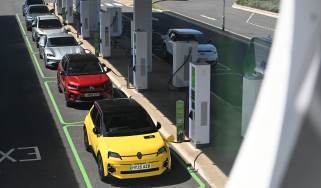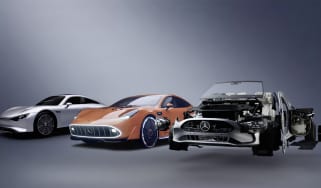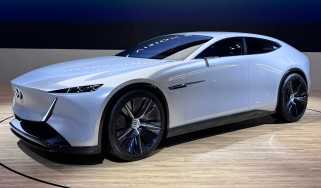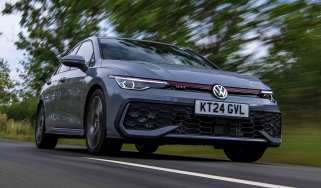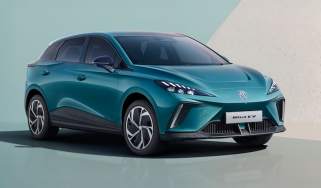Hydrogen filling stations needed as UK urged to follow Europe’s lead
Manufacturers believe the UK’s lack of hydrogen filling stations could negatively effect the transport sector
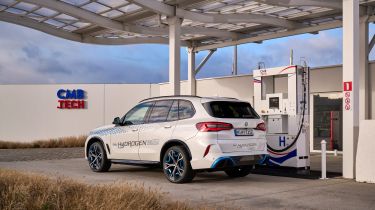
The UK Government must support the development of a European-style Hydrogen filling station network and give drivers a genuine alternative to battery-powered EVs, say car makers frustrated by a lack of progress in the development of hydrogen fuelling options.
Speaking at a ‘Hydrogen Summit’ organised by BMW on 6 June, David Wong, the head of technology and innovation at the Society of Motor Manufacturers and Traders, said the UK requires the same sort of policy ambition as the EC. Across the channel, the European Commission has mandated that by 2030 there should be at least one Hydrogen filling station every 120 miles on all major routes, and in all towns with a population of 100,000 or more. “What gets regulated, gets done”, said Wong, at the same time calling for the Government to ditch the expensive car road tax supplement for all zero-emission vehicles, whether hydrogen or battery powered.
Europe’s backing for a hydrogen fuelling network has encouraged BMW to commit to launching its first hydrogen fuel-cell-powered production model in 2028, but currently the UK won’t be on the list of countries where it’s sold.
Also speaking at the summit, BMW’s head of Hydrogen tech, Dr Jürgen Guldner, warned: “We sincerely hope that the infrastructure will develop further because right now in the UK it’s not in any condition where it would make sense to launch such a vehicle. “Hopefully in the next few years, development will pick up and there will be more hydrogen fueling stations that would allow a market introduction,” he said.
With BMW absent from the market, UK car drivers will in theory have access to only two hydrogen vehicles, the Toyota Mirai and new Hyundai Nexo. The reality is that sales of both will be effectively limited to corporate customers with their own hydrogen fuelling resources.
Yet according to Guldner, there’s a broad potential market for hydrogen-fuelled cars, particularly among high-mileage drivers and those living in cities without access to off-street parking.
“We get a lot of feedback from real people saying a battery car does not work for me,” he says. “Maybe they don't have electric charging at home, maybe they are on the road a lot and don't want to depend on charging stops. Even if we can get them down to 20 minutes at some point, we still have a (charge point) infrastructure issue. We have issues like trailering (towing), and obviously cold weather conditions where a battery car basically has to be warmed up by using the energy in the battery. Whereas in a fuel cell car, you don't lose any range.”
In spite of these issues, the UK government’s approach to passenger car decarbonisation is focused entirely on a forced transition to battery electric cars, supported by the Climate Change Committee (CCC), a body of environmental scientists charged with advising the government on net zero strategy. The CCC has repeatedly stated it sees no place for hydrogen in road transport, an approach some car makers say is short-sighted, and could actually slow the journey to net zero if a proportion of consumers choose to stick with ICE rather than battery-electric vehicles.
According to Wong, the government must be more open-minded: “Hydrogen fuel cell vehicles are not the enemy to batteries. Battery-electric vehicles are not the enemy to hydrogen fuel-cell vehicles,” he says. “The common enemy is carbon and fossil fuels, and that is why we think the two are complementary, and that demands technological openness and, for vehicle manufacturers investing in both of these technologies, commitment to a multi-pathway approach.”
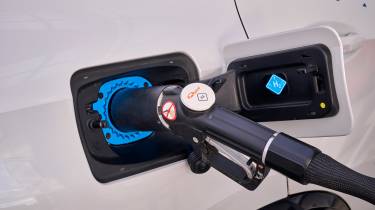
Jon Hunt, Senior Manager Hydrogen Transformation, Toyota GB, also spoke at the summit to affirm that view. “When it comes down to vehicles,” he said, “our role is to provide customers with choice. They can make decisions that best suit themselves.
“What we can't have is people dismissing technologies which are there to enable us all. So I would request that people respect the fact that bringing these technologies to market is for the benefit of all, and our job as an automotive manufacturer is to be able to make them accessible and usable for our customers.”
Can hydrogen HGVs kickstart a transition to fuel-cell cars?
Having had around a dozen hydrogen filling stations a few years ago, but just one publicly accessible location today, the UK is not currently a good place to consider marketing or buying a hydrogen-fuelled car.
Europe’s drive to introduce a viable hydrogen filling station network revolves around demand for the fuel for fuel-cell-powered heavy goods EVs, because in many cases truck operators say they can’t do the work required of them using battery-powered vehicles. So while the UK’s first flowering of hydrogen filling stations for cars has quietly disappeared, it’s not that the interest has disappeared with it, but the pathway has changed.
That’s because a hydrogen filling station can be viable even if it’s used by only a handful of trucks per day, whereas it might require hundreds of hydrogen cars visiting daily to be profitable. However, once installed for trucks, hydrogen infrastructure is ready at the roadside for cars to use too, potentially resolving a ‘chicken and egg’ situation confronting hydrogen fuel cells today.
A recent Road Haulage Association (RHA) survey here in the UK revealed that while 12 per cent of HGV operators want to introduce hydrogen-fuelled trucks and buses within the next five years - and believe the vehicles will be available to enable them to do so - a third of truck operators and nearly two-thirds of coach operators think the UK won’t have a refuelling network to support their ambitions. As a result, the RHA says that without rapid Government intervention to speed hydrogen delivery - and a raft of other measures - the road transport sector simply cannot meet UK net zero targets.
This too flies in the face of advice to the Government from the Climate Change Committee, which sees ‘no role for hydrogen in road transport’. So should the CCC have less influence over the government’s transport agenda?
Chris Jackson is CEO of Protium, a hydrogen infrastructure SME that is leading on the government-backed project HyHaul project, which will see 30 fuel-cell trucks operating on the M4 corridor supported by three new filling stations by 2026.
“I think a lot of people are concerned that if you see battery electric vehicles as effectively not being able to do all the things that people want to do, that just creates a delay in the move away from fossil fuels as people wait for technology that will allow them to decarbonise,” he says. “I don’t think the CCC sees a role (for hydrogen) partly because they’re not seeing vehicles on the road with demand picking up, but also because they’re looking at 33 million vehicles and figuring how to convert the bulk of that.
“Many people would say even if 20 or 15 per cent of passenger vehicles go hydrogen, that's still a customer segment that wouldn't otherwise be able to decarbonize with battery electric, that needs a product.
Jackson is also concerned about a strategy that puts all the UK’s transport solutions at the mercy of global forces: “If you close out all out technology pathways and the only option left for people is bad, because CNG (compressed natural gas) is out, HVO (hydrogenated vegetable oil) is out, hydrogen’s out, you're basically betting the entire hopes of the largest-emitting sector in the UK, which is transport, on one technology which is batteries, on a supply chain that is predominantly in China. And from a political perspective, a national economic perspective, a broad society perspective, how comfortable are we betting the house on that?”
Now you can buy a car through our network of top dealers around the UK. Search for the latest deals…



